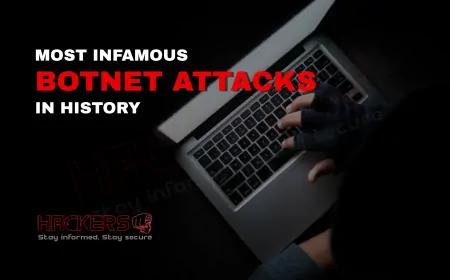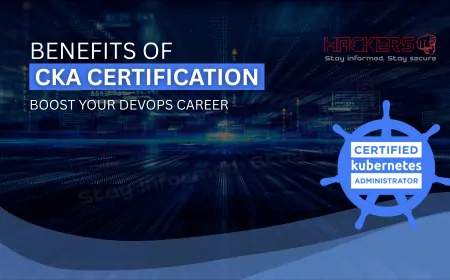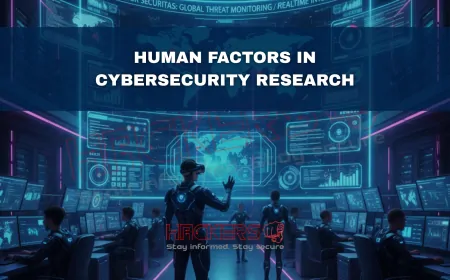Alumni Stories | Success Stories of Graduates from Pune’s Cybersecurity Programs
Pune has long been known as an educational hub in India, with a thriving tech scene that attracts students from all over the country. In recent years, the city has become a hotspot for cybersecurity education. With the rise of digital threats, the demand for skilled professionals in this field has skyrocketed. Graduates from Pune's cybersecurity programs are making waves in the industry, landing impressive roles and even starting their own ventures. This blog dives into some inspiring success stories of these alumni. We will explore how their education in Pune set them on paths to achievement, the challenges they faced, and the lessons they learned along the way. Whether you are a student considering a career in cybersecurity or just curious about the field, these tales show what is possible with dedication and the right training. Join us as we celebrate these graduates and see how Pune's programs are shaping the future of digital security.

Table of Contents
- Overview of Pune's Cybersecurity Landscape
- Top Cybersecurity Programs in Pune
- Success Story 1: Kailash and Sanjay Katkar, Founders of Quick Heal
- Success Story 2: Shubham Yernale, Founder of Secureise
- Success Story 3: Aishwarya Kendle, Bug Bounty Hunter
- Success Story 4: Gaurav Popalghat, Cybersecurity Expert
- Success Story 5: Bhuvan, Cyber Security Associate at Sattrix
- Success Story 6: Omkar Kedar, Cybersecurity Analyst
- Challenges and Lessons Learned
- Conclusion
- Frequently Asked Questions
Overview of Pune's Cybersecurity Landscape
Pune's position as a key player in India's IT sector makes it an ideal place for cybersecurity education. The city hosts numerous colleges, universities, and training institutes that offer specialized programs in this area. These range from undergraduate degrees to short-term certifications. What sets Pune apart is its blend of academic rigor and industry connections. Many programs partner with tech companies, giving students real-world exposure through internships and projects. The local job market is robust, with firms like Quick Heal and international giants having offices here. This environment fosters innovation and prepares graduates for global challenges. Students learn about topics like ethical hacking, which involves testing systems for weaknesses in a legal way, and network security, which protects data during transmission. The programs emphasize hands-on learning, using tools and simulations to build practical skills. As cyber threats evolve, Pune's institutions keep updating their curricula to stay relevant. This commitment ensures that graduates are not just knowledgeable but also adaptable in a fast-changing field.
Top Cybersecurity Programs in Pune
To give you a clear picture, here is a table highlighting some of the top cybersecurity programs available in Pune. This includes key details to help aspiring students make informed choices.
| College/Institute | Program Offered | Duration | Key Features |
|---|---|---|---|
| MIT Arts, Commerce and Science College (MIT ACSC) | B.Sc. in Cyber Security | 3-4 years | Hands-on labs, industry certifications, placement support |
| Dr. D.Y. Patil International University (DYPIU) | B.Tech in Cyber Security | 4 years | Focus on emerging technologies, research opportunities |
| Indira College of Commerce and Science | B.Sc. in Cyber Security | 3 years | Curriculum on ethical hacking, digital forensics |
| Government Polytechnic Pune | Diploma in Information Technology (with Cyber Focus) | 3 years | Practical training, hackathon participation |
| SevenMentor | Certified Ethical Hacker (CEH) Course | 3-6 months | Certification prep, job-oriented training |
| SKILLOGIC | Cyber Security Professional Course | 3-4 months | Hands-on projects, placement assistance |
Success Story 1: Kailash and Sanjay Katkar, Founders of Quick Heal
Kailash and Sanjay Katkar are perhaps the most iconic figures in Pune's cybersecurity scene. Growing up in Pune, the brothers had humble beginnings. They left formal education after the ninth grade but never stopped learning. Their journey started in the early 1990s when they began repairing computers and radios in a small office. Curiosity led them to explore computer viruses, which were becoming a big issue at the time. In 1995, they founded Quick Heal Technologies, a company dedicated to antivirus software. Based in Pune, Quick Heal grew from a local startup to a global player, protecting millions of users from cyber threats. The brothers' success shows that passion and self-learning can lead to great things. Today, Quick Heal is listed on the stock exchange, and the Katkars are role models for aspiring entrepreneurs. They credit Pune's vibrant tech community for their growth, where they found mentors and collaborators. Their story inspires many to pursue cybersecurity, proving that you do not need a fancy degree to make an impact. Instead, it is about solving real problems and staying persistent.
Success Story 2: Shubham Yernale, Founder of Secureise
Shubham Yernale graduated from Government Polytechnic Pune in 2018 with a diploma in Information Technology. Right after finishing his studies, he teamed up with his friend Akshay Shelke to start Secureise, a cyber security training and services company. What started as a small venture has now trained over 300 students from around the world. Shubham focuses on practical skills, teaching ethical hacking and vulnerability assessment. These are methods to find and fix weaknesses in systems before bad actors exploit them. His company also provides services to businesses, helping them secure their digital assets. Shubham's path was not easy. He faced funding challenges and had to build credibility in a competitive market. But his hands-on experience from college, including projects on network security, gave him a strong foundation. Today, Secureise is thriving, and Shubham often speaks at events in Pune. He advises young graduates to start small and learn from failures. His story highlights how Pune's programs encourage entrepreneurship, turning students into leaders in the field.
Success Story 3: Aishwarya Kendle, Bug Bounty Hunter
Aishwarya Kendle completed her diploma from Government Polytechnic Pune in 2018. She quickly made a name for herself as a bug bounty hunter. This role involves finding security flaws in websites and software, then reporting them for rewards. Aishwarya has discovered vulnerabilities in companies like Lenovo, PepperFry, and others. She even wrote a blog about hijacking subdomains, which gained attention in the community. Her achievements include being in the hall of fame for one company and getting selected for a job at Veritas in Pune through campus placement. Aishwarya's journey began with college projects, like developing a device for exam validation and a system to detect road signs. These built her problem-solving skills. She faced skepticism as a woman in a male-dominated field but persevered. Now, she works independently, balancing bug hunting with other pursuits. Aishwarya shares that Pune's education system, with its emphasis on practical labs, prepared her well. Her tip for beginners: Practice daily and join online communities to learn from others.
Success Story 4: Gaurav Popalghat, Cybersecurity Expert
Gaurav Popalghat, another 2018 graduate from Government Polytechnic Pune, has excelled in bug bounty hunting. He has earned up to $10,000 by finding vulnerabilities on platforms like Bugcrowd. His discoveries include denial-of-service attacks and issues with customer support tickets. Gaurav is in the hall of fame for 58 companies and has certificates of appreciation from nine. His work helps make the internet safer by identifying risks before they cause harm. Starting with basic IT knowledge from college, Gaurav dove into self-study. He learned about common vulnerabilities like cross-site scripting, which allows attackers to inject malicious code into web pages. Pune's hackathon culture inspired him to compete and collaborate. Challenges included long hours and initial rejections, but each taught him something new. Today, Gaurav mentors others and contributes to the community via social media. His success underscores the value of Pune's programs in fostering ethical hackers who protect digital spaces.
Success Story 5: Bhuvan, Cyber Security Associate at Sattrix
Bhuvan started as a civil engineering graduate but shifted to cybersecurity after exploring networking. He joined SKILLOGIC in Pune for their professional course. The training covered key topics like the OSI model, which explains how data moves across networks, and types of cyber attacks. Bhuvan appreciated the hands-on projects, including ethical hacking with tools like Nmap for scanning networks. Despite a non-technical background, he found the concepts explained simply. After completing an internship with projects on penetration testing, he prepared for interviews with help from the institute. Bhuvan faced a few rejections but used them to improve. He now works as a Cyber Security Associate at Sattrix, where he applies his skills daily. His story shows how Pune's training programs support career transitions, making cybersecurity accessible to diverse backgrounds. Bhuvan advises persistence and practical practice as keys to success.
Success Story 6: Omkar Kedar, Cybersecurity Analyst
Omkar Kedar landed his role as a Cybersecurity Analyst in Pune after completing a specialized course at a local academy. His journey involved rigorous training in areas like threat detection and response. Omkar learned to identify phishing attempts, which are fake emails designed to steal information, and to secure networks against unauthorized access. The program included certifications that boosted his resume. Starting from scratch, he built confidence through simulations and group projects. Challenges included keeping up with evolving threats, but the supportive faculty helped. Now, Omkar works on protecting company data, conducting audits, and educating teams on best practices. He credits Pune's ecosystem for providing opportunities close to home. His advice: Stay curious and update skills regularly, as the field changes quickly.
Challenges and Lessons Learned
While these stories are inspiring, they also reveal common challenges. Many graduates faced:
- Adapting to rapid technological changes, requiring constant learning.
- Overcoming initial job rejections by improving through feedback.
- Balancing work and further education in a demanding field.
- Dealing with skepticism, especially for those from non-traditional backgrounds.
Lessons include the importance of hands-on experience, networking in Pune's tech community, and ethical practices. These alumni emphasize resilience and passion as crucial for success.
Conclusion
In summary, Pune's cybersecurity programs are launching pads for remarkable careers. From founders like the Katkar brothers to bug hunters like Aishwarya and Gaurav, these graduates show diverse paths to success. Their stories highlight the city's strong educational foundation, industry ties, and innovative spirit. As cyber threats grow, these professionals are at the forefront, making the digital world safer. If you are inspired, consider exploring Pune's programs. With dedication, you too can join this exciting field and create your own success story.
Frequently Asked Questions
What are the entry requirements for cybersecurity programs in Pune?
Most programs require a high school diploma with science or math subjects. Some advanced courses may need prior IT knowledge or certifications.
How long do cybersecurity courses in Pune typically last?
Undergraduate degrees last 3-4 years, while certification courses can be 3-6 months long.
Are there job placements after completing these programs?
Yes, many institutes offer placement support, with ties to local and global companies.
What skills do graduates learn in these programs?
Skills include ethical hacking, network security, digital forensics, and threat analysis.
Is cybersecurity a good career choice in India?
Absolutely, with high demand and good salaries due to increasing digital threats.
Can non-technical graduates enter cybersecurity?
Yes, many programs accept diverse backgrounds and provide foundational training.
What is ethical hacking?
It is legally testing systems for vulnerabilities to improve security.
Are there scholarships for cybersecurity studies in Pune?
Some colleges offer merit-based or need-based scholarships; check individual websites.
How much can a cybersecurity graduate earn in Pune?
Entry-level salaries range from 4-8 lakhs per year, increasing with experience.
What certifications are popular among Pune graduates?
CEH, CompTIA Security+, and CISSP are common and valued by employers.
Is online learning available for these programs?
Yes, some institutes offer hybrid or fully online options.
What industries hire cybersecurity experts?
IT, finance, healthcare, government, and e-commerce sectors need them.
How do I choose the right program?
Consider curriculum, faculty, placements, and your career goals.
Are women successful in cybersecurity in Pune?
Yes, many like Aishwarya Kendle are thriving and breaking barriers.
What is bug bounty hunting?
It involves finding and reporting software flaws for rewards from companies.
Do programs include internships?
Most do, providing real-world experience with local firms.
How has Pune become a cybersecurity hub?
Thanks to its IT parks, universities, and companies like Quick Heal.
What challenges do new graduates face?
Keeping skills updated and handling complex threats are common.
Can I start a company after graduation?
Yes, as shown by alumni like Shubham Yernale.
Where can I find more alumni stories?
Check college websites, LinkedIn, or industry blogs for inspiration.
What's Your Reaction?










































































